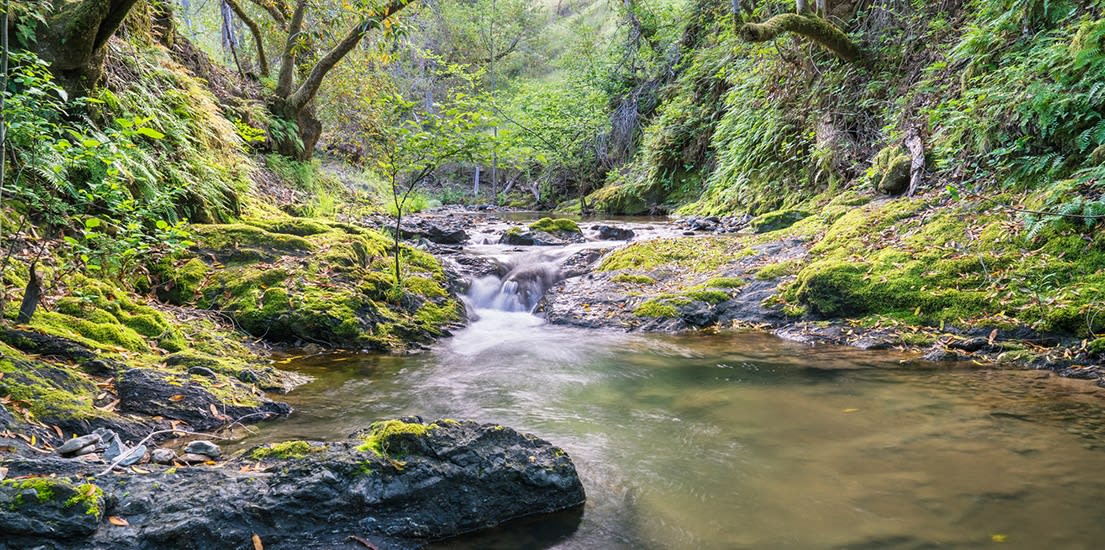In Sonoma County, California, Western Rivers Conservancy has set out to protect a rare swath of old-growth redwood forest and rolling oak woodlands along a critical salmon and steelhead stream: the Wheatfield Fork of the Gualala River. Flowing from the rugged slopes of northern California’s Coast Range, the Gualala River supports an abundance of wildlife at the edge of a region that has experienced significant development.
Of the Gualala’s three major forks, the Wheatfield Fork is the largest, injecting both the South Fork Gualala and the mainstem with significant flows of cold water. The river, which meets the South Fork near the coastal town of Gualala, provides crucial spawning and rearing habitat for threatened Northern California Coast winter steelhead and potential habitat for endangered Central California Coast coho salmon. Upstream from the confluence of the Wheatfield and South Fork, WRC is protecting the 4,344-acre Silva Ranch through a conservation easement. Our goal is to protect an important reach of the Wheatfield Fork as well as a series of headwater tributaries that flow through the property—over six miles of fish-bearing streams in all.
To accomplish this, we are working with the owners of the ranch to place a conservation easement on the property that will forever protect the riverlands and forest lands that are so important to fish and wildlife. The current owners will continue to work the non-conservation lands to generate income while we realize together our shared goal of conserving the woodlands, redwoods and riparian areas throughout the ranch.
The Silva Ranch is especially important because it lies adjacent to 75,000 acres of already protected lands. Adding the ranch to this assemblage will improve habitat connectivity and will benefit fish and wildlife on a scale far greater than the Silva property itself. WRC’s efforts will ensure that the ranch, which has potential for over 20 home sites and intensive grape production, remains free of development and extensive agriculture, while remaining an economic resource for the Silva Family and a benefit to the local economy.


